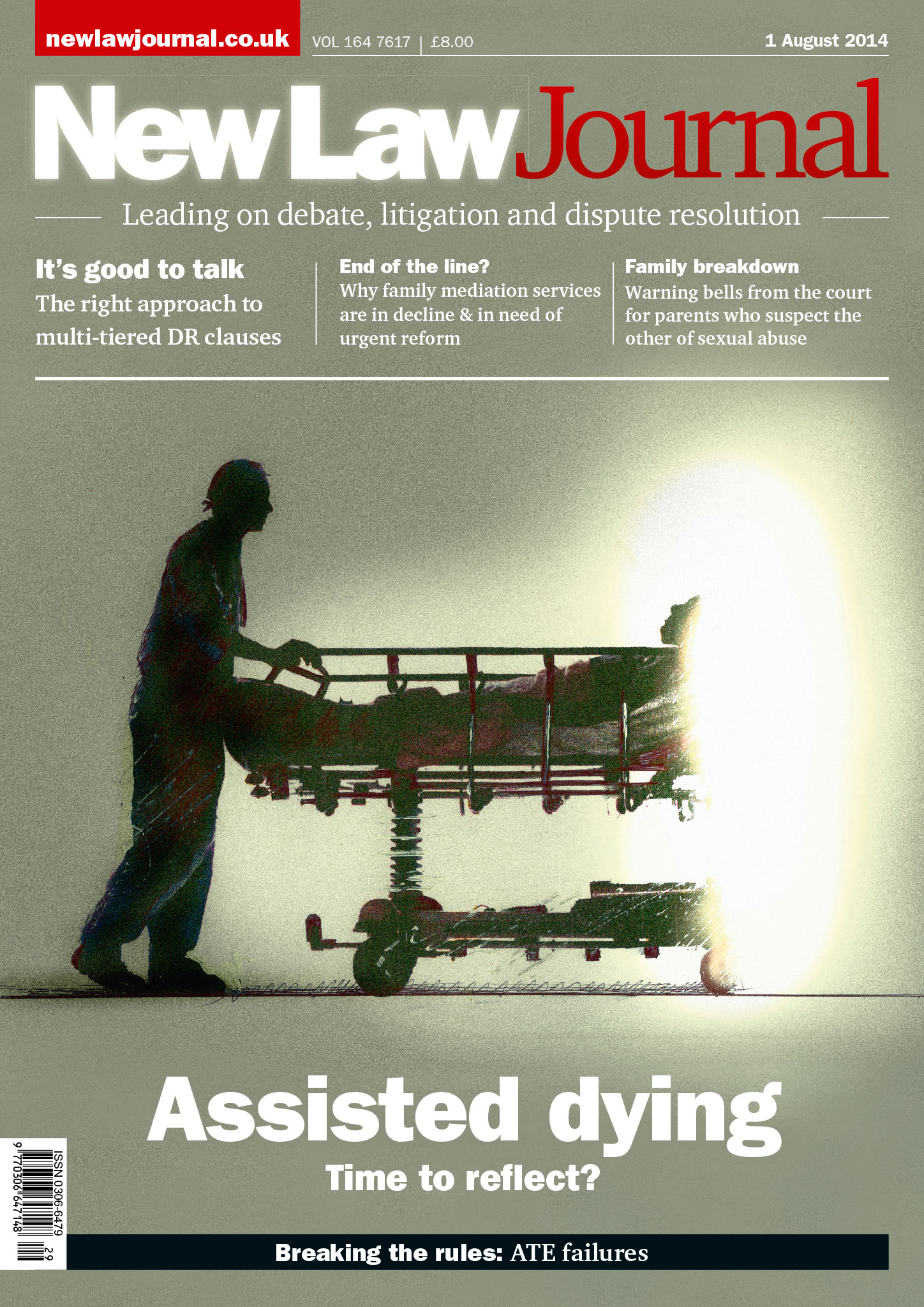
Lord Dyson sends CJC costs committee back to drawing board
Three recent stories underline the meaning of the rule of law in modern constitutions & politics, says Roger Smith
The elements of harassment have been re-emphasised, observes Mark Whitcombe
The Assisted Dying Bill as currently drafted is highly unsatisfactory & in need of significant amendments, say Khawar Qureshi QC & Catriona Nicol
A recent case sends a warning to any parent who suspects the other of sexual abuse, as Jonathan Herring reports
Robert Kay examines the approach to multi-tiered dispute resolution clauses
Crawford v Jenkins [2014] EWCA Civ 1035, [2014] All ER (D) 241 (Jul)
Coventry and others v Lawrence and another (No 2) [2014] UKSC 46, [2014] All ER (D) 226 (Jul)
Enterprise Holdings Inc v Europcar Group Ltd and another [2014] EWHC 2498 (Ch), [2014] All ER (D) 246 (Jul)
MOVERS & SHAKERS

NLJ Career Profile: Ken Fowlie, Stowe Family Law
Ken Fowlie, chairman of Stowe Family Law, reflects on more than 30 years in legal services after ‘falling into law’

Gardner Leader—Michelle Morgan & Catherine Morris
Regional law firm expands employment team with partner and senior associate hires

Freeths—Carly Harwood & Tom Newton
Nottinghamtrusts, estates and tax team welcomes two senior associates







